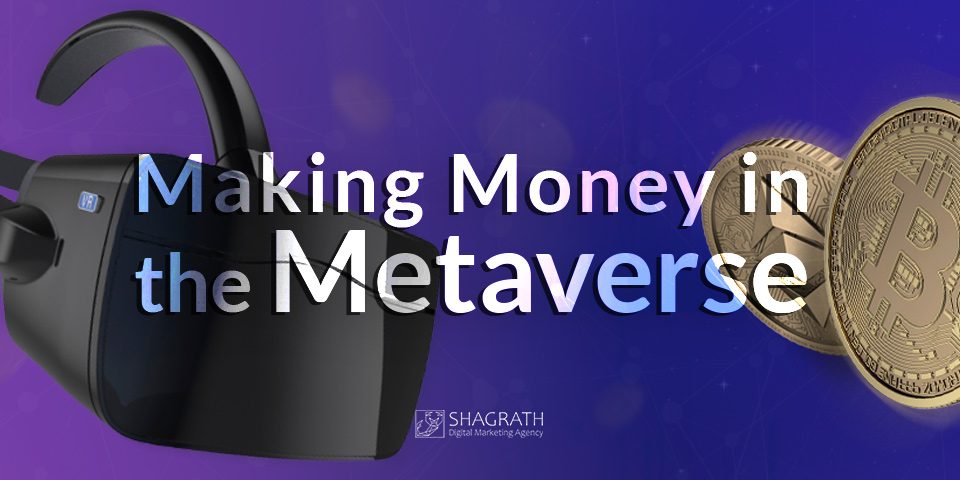
9 Ways of Making Money in the Metaverse
February 6, 2022AI cryptocurrency Dawn

AI cryptocurrency, also referred to as artificial intelligence cryptocurrency, is a digital or virtual currency that employs artificial intelligence (AI) and machine learning to facilitate and secure transactions. It uses AI to improve security, make transactions easier, and optimize cryptocurrency operations. With the release of Ethereum in 2015, artificial intelligence (AI) cryptocurrency—also referred to as smart contracts on the blockchain—first surfaced.

Ethereum introduced the notion of smart contract-powered decentralized applications (dApps) to the cryptocurrency space, enabling automated and self-executing blockchain-powered contracts. An important turning point in the development of cryptocurrencies and the application of artificial intelligence to the industry was reached by this development.
AI cryptocurrency Definition
AI cryptocurrency is a type of digital or virtual currency that uses AI technology to ensure secure and efficient transactions. It uses AI and machine learning to enhance security, streamline transactions, and improve operational efficiency. AI cryptocurrency relies on blockchain networks for transparency and reliability in transactions. Cryptocurrencies present unique regulatory challenges due to their decentralized nature and lack of legal clarity. AI offers benefits like faster decision-making and cost reduction but also introduces risks like manipulation and insider trading.
Academic research on exchange rate forecasting has primarily focused on traditional financial markets, whereas cryptocurrencies are still in their early stages.

Because of the sharp fluctuations in cryptocurrency market prices, traditional time series methods are ineffective for predicting them. The purpose of this study is to understand and predict the price dynamics of cryptocurrencies, specifically Bitcoin, Ethereum, and Ripple, using artificial intelligence modeling frameworks.
Cryptocurrency, such as Bitcoin, has established itself as the primary driver of decentralization. Following Bitcoin, many other cryptocurrencies emerged, including Ethereum and Ripple. Due to the uncertainty of their prices, many people speculate on them. Understanding cryptocurrencies’ internal features and predictability is critical.
Benefits of AI cryptocurrency

1. Enhanced Security
AI integration improves security, lowering the risk of fraud and unauthorized access.
2. Efficient transactions.
AI streamlines cryptocurrency transactions, reducing processing time and increasing scalability.
3. Automated processes
AI algorithms automate a variety of tasks, increasing operational efficiency while reducing manual intervention.
4. Data analysis
AI analyzes data patterns to predict market trends, allowing for informed investment decisions.
Challenges and Risks of AI cryptocurrency

1. Security Vulnerabilities
AI cryptocurrency introduces new security vulnerabilities that can be targeted by cyber threats.
2. Regulatory Challenges
Compliance with evolving regulations and policies presents ongoing challenges for AIbased cryptocurrencies.
3. Volatility
Price fluctuations and market instability present challenges for AI-powered cryptocurrency investments.
4. Investment Risks
Volatility and unpredictability increase the investment risks associated with AI cryptocurrency transactions.
5. Technological Dependency
Dependence on AI technology introduces dependencies that can impact operational resilience and performance.
6. Regulatory uncertainty
Government regulations and policies may influence the adoption and use of AI-based cryptocurrencies.
Use Cases of AI cryptocurrency

• Smart Contracts
AI cryptocurrency enables automated and self-executing smart contracts, increasing trust and transparency.
• Fraud Detection
AI detects fraud and protects cryptocurrency transactions and user accounts.
• Predictive Analytics
AI analyzes cryptocurrency data to forecast market trends and improve investment strategies.
Key Players in the AI cryptocurrency Market

1. Leading blockchain companies are at the forefront of integrating artificial intelligence into cryptocurrency networks.
2. Major financial institutions are investigating AI-powered initiatives in the cryptocurrency space.
3. Technology innovators drive the development and implementation of AI cryptocurrency solutions.
Future of AI cryptocurrency

The future of AI and cryptocurrency is an exciting and disruptive combination that has the potential to transform the financial industry. As artificial intelligence advances and refines its capabilities, it presents exciting opportunities to improve the efficiency and security of cryptocurrency transactions. AI algorithms can analyze massive amounts of data to forecast market trends, optimize trading strategies, detect fraud, and improve risk management in the volatile cryptocurrency market.

With the integration of AI technologies, cryptocurrencies have the potential to become more mainstream and widely adopted by both businesses and consumers, resulting in a more decentralized and efficient financial ecosystem. As AI and cryptocurrency technologies continue to evolve and intersect, we can expect to see innovative solutions and new opportunities emerge in the future of finance.

• Technology Integration
AI will continue to be integrated into new cryptocurrency platforms, thereby improving security and efficiency.
• Regulatory Evolution
AI-powered cryptocurrencies will have a significant impact on the future of finance regulations.
• Market Adoption
AI-based cryptocurrencies are expected to gain popularity and transform the global financial landscape.



